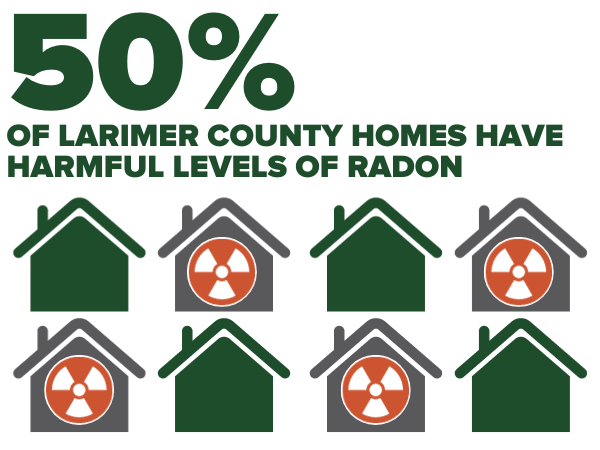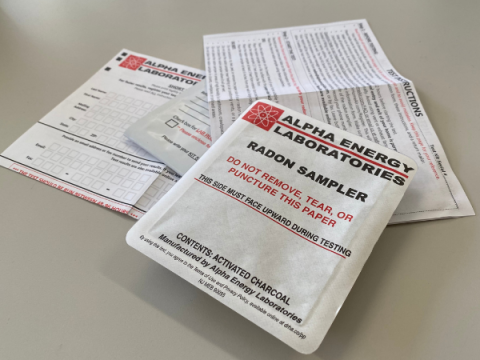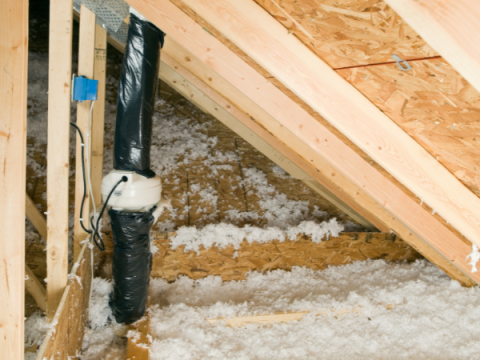Radon is a naturally occurring, colorless, and odorless radioactive gas, and elevated levels inside a home can pose a serious health threat to residents. Radon exposure is the second leading cause of lung cancer in the United States, contributing to as many as 500 lung cancer deaths in Colorado each year. Radon can easily enter homes and other buildings through small openings like cracks in foundations, openings around pumps and drains, and crawl spaces. Any home may have high levels of radon, even if neighboring homes do not.
 The only way to know if your home has harmful levels of radon is to test.
The only way to know if your home has harmful levels of radon is to test.
How do I test my home?
- You can purchase a radon test kit online, in many retail or hardware stores, or order one through the National Radon Program Services.
- Order a kit through The Colorado Department of Public Health and Environment (CDPHE)
- The City of Fort Collins has discounted test kits available for residents of Fort Collins.
Looking to Mitigate Your Home for Radon?
Many people choose to hire a contractor to mitigate their home for radon. The Colorado Department of Regulatory Agencies (DORA) certifies and maintains a list of radon mitigation professionals.
If you are needing financial assistance, the Colorado Department of Health and Environment has a Low Income Radon Mitigation Assistance program. Learn more.
 Testing is easy and may be available for free! A monitor is placed in your home to sample the air. The monitor needs to sample the air for a specific period of time, from a few days to sometimes several weeks.
Testing is easy and may be available for free! A monitor is placed in your home to sample the air. The monitor needs to sample the air for a specific period of time, from a few days to sometimes several weeks.  Mitigation means you take steps to reduce the level of radon in your home. Frequently, this means installing a sub-slab or sub-membrane depressurization system. The Colorado Department of Health and Environment estimates for most homes, this will cost about $1,000 - $2,000.
Mitigation means you take steps to reduce the level of radon in your home. Frequently, this means installing a sub-slab or sub-membrane depressurization system. The Colorado Department of Health and Environment estimates for most homes, this will cost about $1,000 - $2,000. 